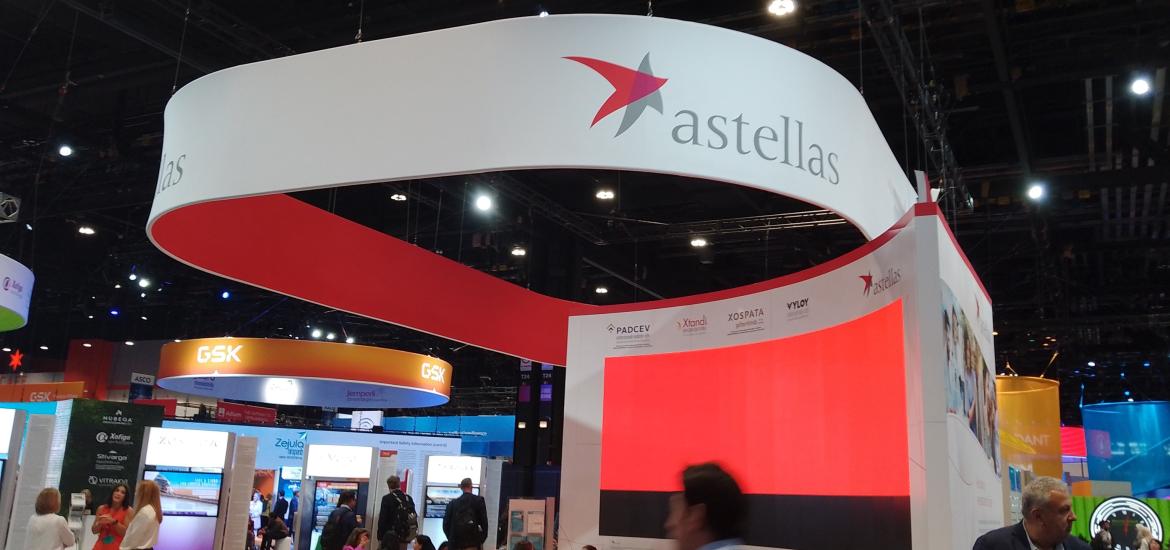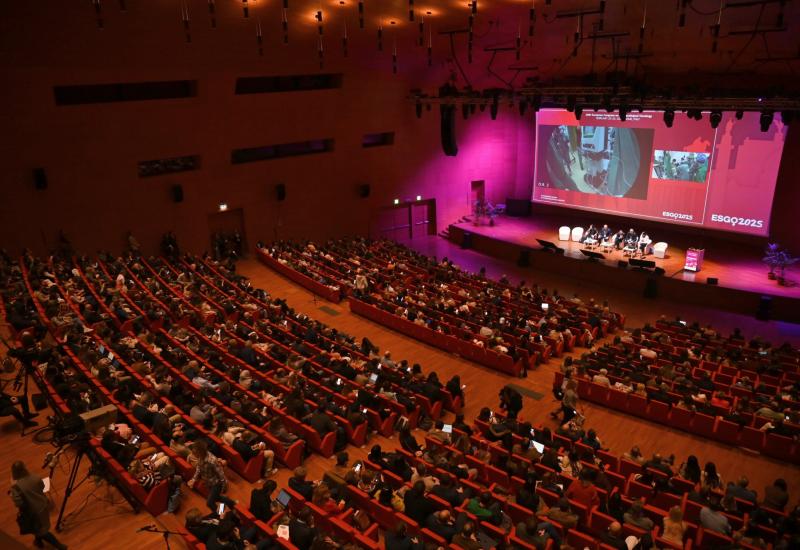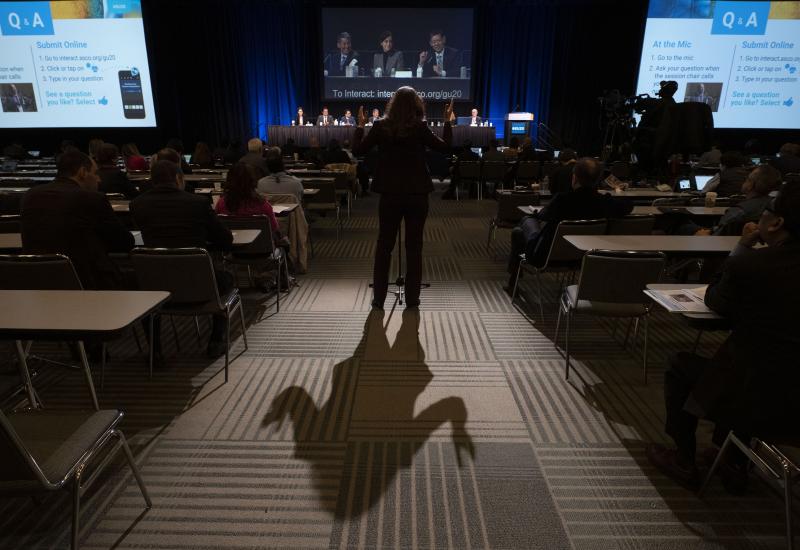
ASCO 2025 – Astellas's new Claudin18.2 interest
Evopoint reveals intriguing but opaque first-in-human data for XNW27011.
Evopoint reveals intriguing but opaque first-in-human data for XNW27011.

If it's clear that Astellas is a fan of targeting Claudin18.2, it's become equally evident that the company thinks its current approach, with the naked antibody Vyloy, isn't quite up to the task. Last week Astellas bought itself a new approach, an anti-Claudin18.2 ADC, and an ASCO poster on Monday showed how this might be an improvement over Vyloy.
The deal was with the Chinese company Evopoint, and concerned XNW27011, for which Astellas paid $130m up front plus $70m in "near-term" payments to secure ex-China rights. The ASCO poster claimed a 51% best overall response rate among 78 evaluable gastric cancer patients, with the intriguing note that this first-in-human trial enrolled patients with Claudin18.2 expression as low as 5%.
This is important in light of Vyloy's label, as part of a chemo combo in first-line gastric cancer, limiting that drug to ≥75% expressers. A comparison against early Vyloy monotherapy studies in relapsed patients shows XNW27011 to be far superior, but the big test will be against ADC molecules from the likes of AstraZeneca/Keymed (sonesitatug vedotin) and Innovent (IBI343).
Confidential
The XNW27011 poster related to a 20 April 2025 data cutoff, versus a dataset in the ASCO abstract relating to 28 December 2024. However, much additional data was omitted because of confidentiality following the Astellas deal, according to Evopoint's chief business officer, Xiaojun Liu, who manned the poster board.
Thus it's not being disclosed what the confirmed ORR by Recist is, and whether any activity was actually seen in patients with Claudin18.2 expression levels well below 75%. The study tested three XNW27011 doses (2.4mg/kg, 3.0mg/kg and 3.6mg/kg); asked by ApexOnco whether a go-forward dose had been selected Liu said it had, but wouldn't say which one.
The ASCO abstract noted one treatment-emergent death from pneumonia at 3.0mg/kg, but the poster made no mention of this, and Liu said this wasn't related to XNW27011. In total there was a 38% rate of serious treatment-related events, and 64% rate of those graded 3 or above.
83% of the patients had received a checkpoint blocker, and the abstract also made the claim that "preliminary antitumour activity" was observed in subjects who had been treated with a differently acting ADC with a topoisomerase inhibitor payload, but again the poster made no mention of this, and Liu wouldn't elaborate.
How the Evopoint data compare against the Claudin18.2 ADC front-runners is somewhat tricky to tease out. Perhaps the best gastric cancer data have come from sonesi-V, which Astra licensed from Keymed for $63m in 2023: ORR as high as 61% was claimed for one dose, but this included unconfirmed responses, and the Claudin18.2 expression cutoff for that trial was ≥20%.
Innovent has reported a 32% ORR from an IBI343 study including patients expressing Claudin18.2 as low as 1%, with one dose yielding a 45% ORR in ≥40% expressers. IBI343 is now in a Japanese phase 3 study, G-Hope-001, in third-line gastric cancer.
Cross-trial comparisons for anti-Claudin18.2 monotherapy in relapsed gastric cancer
| Project | Company | Study | Claudin18.2 expression | Data |
|---|---|---|---|---|
| Vyloy* | Astellas | NCT03528629 | ≥75% at IHC ≥2+ | ORR 0% (0/17) |
| NCT01197885 | “Positive” | ORR 30% (4/13) | ||
| Sonesitatug vedotin | Keymed/ AstraZeneca | NCT04805307 | ≥20% at IHC ≥2+ | ORR incl uPR & uCR: 50-61%, no dose response |
| IBI343 | Innovent | NCT05458219 | ≥1% at IHC 1+/2+/3+ | ORR 32% (32/99); ORR 38-45% in ≥40% IHC 2+/3+ expressers |
| XNW27011 | Evopoint/ Astellas | NCT06792435 | ≥5% at IHC ≥2+ | ORR incl uPR: 31% (9/29), 61% (19/31), 67% (12/18) for 2.4mg/kg, 3.0mg/kg, 3.6mg/kg |
| Tecotabart vedotin | LaNova (handed back by BMS) | NCT05161390 | “Positive” | ORR incl uPR: 31% (11/36) |
| EO-3021 | Elevation/ CSPC (discontinued) | NCT05043987 | ≥20% at IHC 2+/3+ | ORR 22% (8/36) |
Note: *naked MAb, all others being ADCs. Source: OncologyPipeline.
Minutiae about activity are especially relevant given how competitive the Claudin18.2 ADC space has become. Only the best will win here, a view illustrated by Elevation's discontinuation of EO-3021 in March, and earlier handing back of Kelun's SKB315 (by its former licensee, Merck & Co) and LaNova's tecotabart vedotin (by Bristol Myers Squibb).
XNW27011 uses a topoisomerase 1 inhibitor payload called YL0010014, and is generated using Medilink's Tmalin, a linker technology that also lies behind ADCs including BioNTech's BNT326 and Zai Lab's zocilurtatug pelitecan.
2945













